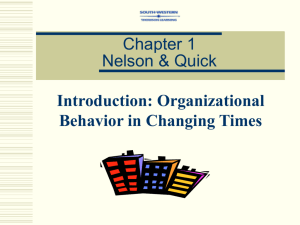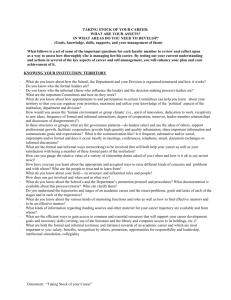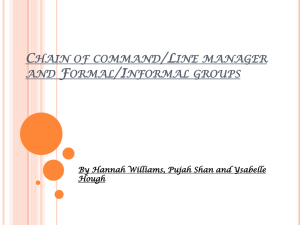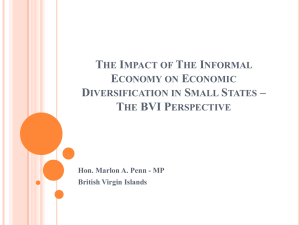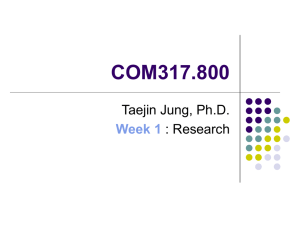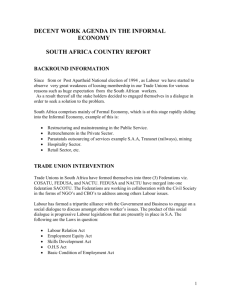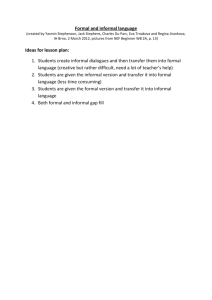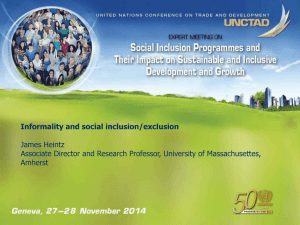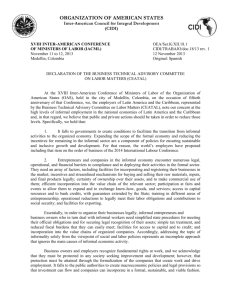The Politics of “Informality” and Economic Policy
advertisement
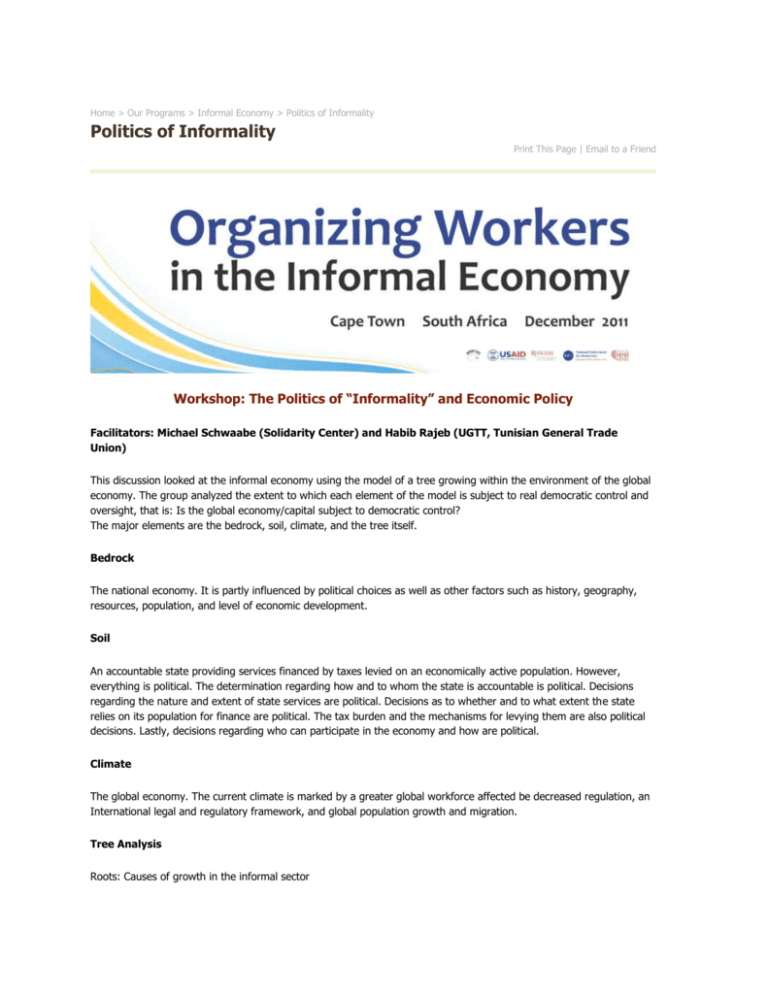
Home > Our Programs > Informal Economy > Politics of Informality Politics of Informality Print This Page | Email to a Friend Workshop: The Politics of “Informality” and Economic Policy Facilitators: Michael Schwaabe (Solidarity Center) and Habib Rajeb (UGTT, Tunisian General Trade Union) This discussion looked at the informal economy using the model of a tree growing within the environment of the global economy. The group analyzed the extent to which each element of the model is subject to real democratic control and oversight, that is: Is the global economy/capital subject to democratic control? The major elements are the bedrock, soil, climate, and the tree itself. Bedrock The national economy. It is partly influenced by political choices as well as other factors such as history, geography, resources, population, and level of economic development. Soil An accountable state providing services financed by taxes levied on an economically active population. However, everything is political. The determination regarding how and to whom the state is accountable is political. Decisions regarding the nature and extent of state services are political. Decisions as to whether and to what extent the state relies on its population for finance are political. The tax burden and the mechanisms for levying them are also political decisions. Lastly, decisions regarding who can participate in the economy and how are political. Climate The global economy. The current climate is marked by a greater global workforce affected be decreased regulation, an International legal and regulatory framework, and global population growth and migration. Tree Analysis Roots: Causes of growth in the informal sector National legal framework and enforcement (e.g., systemic obstacles that hinder civil society organizing) Gender (e.g., elimination of male “regulated” work, discounting of women in “informal” work, discrimination) Damage to / repression of worker representative structures (e.g., denial of right to negotiate) Effectiveness of national economic policymakers’ response to globalization (e.g., trade barriers, economic development) Personal choice (e.g., rational decision versus only available option) Education Lack of economic opportunities and outsourcing Other social factors (e.g., discrimination, lack of self-identity as “workers”) Trunk: Informal economy Branches: Economic sectors Formal sector outsourcing to unregulated work and the criminal sector Key sectors include: domestic and home-based work, commercial vending on the streets, waste, transport, construction, agriculture, fishing, small-scale and outsourced manufacturing, sex workers Concentration of economic power and unregulated supply chain outsourcing. Leaves: Less desirable outcomes Poverty trap Exploitation Inadequate health care Social consequences—childcare, education, etc. Reduced tax revenues—a vicious spiral ensues where the greater needs receive less funding Democratic exclusion Criminality Fruit: More desirable outcomes Development of previously ignored sectors Degree of economic flexibility Questions asked during the course of the discussion were: What is the purpose of globalization? What is the future of the state in the face of globalization? What is the role of the state in the informal economy, and how does it remain relevant as the economy is less and less regulated? How does the labor movement remain relevant? Discussion participants noted the lack of democracy and accountability at the various levels of the tree diagram and emphasized the need to re-democratize every level of the economy. They noted the need to organize more workers and build union power to be able to demand accountability at all levels. With respect to the relevance of trade unions, some offered the perspective that unions need to recognize all workers as workers and avoid distinguishing between formal versus informal workers—although it was noted it may be too soon to eliminate the lines because of the reluctance of some unions to organize those at the end of the spectrum. One participant will return to Zimbabwe and emphasize the need for political education as part of the trade union training agenda with informal workers. Habib Rajeb made a presentation on the experience of the UGTT and the informal economy in Tunisia, pre- and postrevolution.

